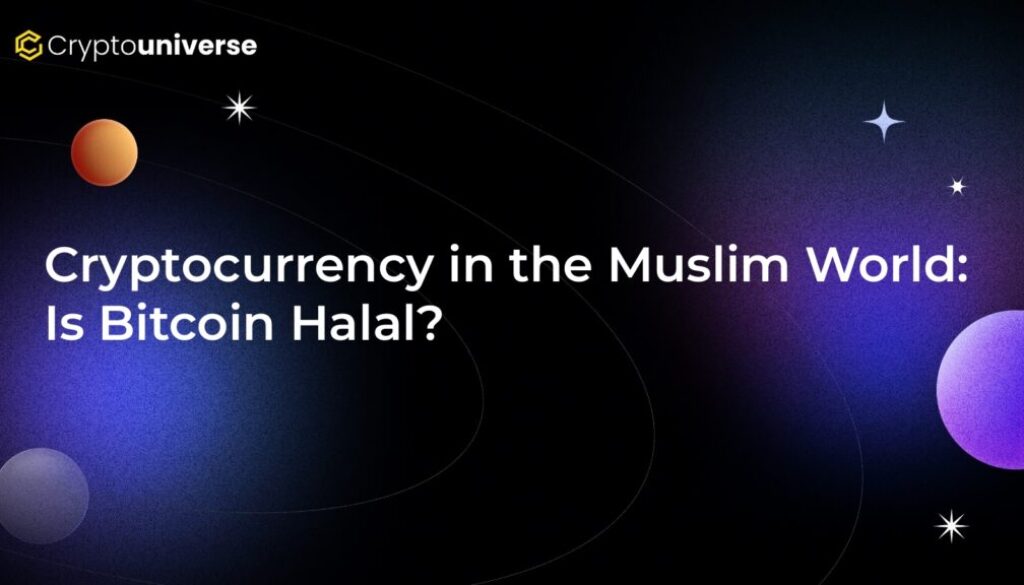Cryptocurrency in the Muslim World: Is Bitcoin Halal?

The Digital Dilemma: Navigating Cryptocurrency in the Islamic World
The global explosion of digital currencies has created a profound and urgent conversation within the Muslim community. With over 1.8 billion followers of Islam worldwide, the question of whether cryptocurrencies like Bitcoin and Ethereum are permissible under Islamic law is more relevant than ever. The debate is complex, touching on everything from Bitcoin’s role as “digital gold” to the speculative nature of meme coins. So, the central question remains:
This article delves into the intersection of cryptocurrency and Sharia law, exploring the different scholarly opinions and the core principles of Islamic finance to provide a clear and comprehensive perspective on this modern financial phenomenon.
Understanding the Pillars of Islamic Finance
To assess the status of cryptocurrency, we must first understand the foundational principles of Islamic finance, which is rooted in Sharia law. This ethical financial system is designed to promote fairness, social responsibility, and economic stability. Three key prohibitions are central to its doctrine:
- Riba (Interest): The prohibition of charging or earning interest. Wealth should be generated through legitimate trade and investment in assets, not by lending money for a guaranteed return.
- Gharar (Excessive Uncertainty): The avoidance of transactions involving extreme uncertainty, ambiguity, or risk. Contracts must be clear and transparent, without elements that could lead to dispute or exploitation.
- Maysir (Gambling): The prohibition of speculation and games of chance. This principle forbids acquiring wealth by chance rather than through productive effort.
Any financial asset or transaction, including cryptocurrency, must be evaluated against these principles to determine its permissibility.
What is Cryptocurrency and Why Does It Matter for Islamic Finance?
At its core, a cryptocurrency is a digital or virtual currency secured by cryptography. Its most revolutionary feature is decentralization, made possible by blockchain technology. A blockchain is a distributed ledger that records transactions transparently and immutably across a network of computers. This means no single entity, like a central bank, controls it.
This decentralized nature is a key point in the Islamic debate. Proponents argue that it aligns with Islamic principles by removing the need to trust centralized institutions that often engage in Riba-based practices. However, the assets themselves vary widely:
- Established Cryptocurrencies: Bitcoin (BTC) and Ethereum (ETH) are seen by many as stores of value or utility platforms with real-world use cases.
- Meme Coins: Coins like Dogecoin and Shiba Inu are highly speculative, deriving their value primarily from social media hype rather than underlying fundamentals.
- Penny Coins: Lesser-known, high-risk cryptocurrencies that are often subject to extreme volatility and market manipulation.
Each category presents different challenges and considerations when viewed through the lens of Sharia compliance.
The Scholarly Debate: Is Cryptocurrency Halal or Haram?
Islamic scholars remain divided on the status of cryptocurrency, leading to a spectrum of opinions. There is no single, universally accepted consensus.
The Case for Cryptocurrency Being Halal (Permissible)
Many scholars and proponents argue that cryptocurrencies can be considered halal under certain conditions. Their arguments often center on the following points:
- Classification as ‘Māl’ (Wealth): Scholars like Mufti Faraz Adam argue that since cryptocurrencies have utility and are accepted as a medium of exchange within their networks, they qualify as ‘Māl’ or wealth. This makes owning and transacting with them permissible.
- Decentralization and Transparency: The blockchain’s transparent and decentralized nature prevents control by a single authority, which can be seen as a positive attribute that reduces corruption and aligns with Islamic ideals of fairness.
- A New Form of Currency: Just as fiat currencies (like the US Dollar) have value because of widespread acceptance, cryptocurrencies derive value from the same social consensus.
- Recent Scholarly Endorsements: The debate has been energized by recent news of a fatwa issued by a 90-year-old Saudi Salafi cleric, Sheikh Assim al-Hakeem, deeming Bitcoin acceptable under Islam. While not a universal ruling, such influential opinions are shifting the conversation and providing comfort to many Muslim investors.
The Case for Cryptocurrency Being Haram (Forbidden)
Conversely, many prominent Islamic authorities, including Sheikh Shawki Allam, the Grand Mufti of Egypt, have expressed serious reservations or outright prohibitions. Their concerns include:
- Extreme Volatility (Gharar): The wild price swings common in the crypto market are seen as a form of excessive uncertainty (Gharar), making it difficult to determine a fair value and exposing investors to undue risk.
- Speculation (Maysir): Critics argue that much of the activity in the crypto market, especially with meme coins and short-term trading, is pure speculation, which is akin to gambling (Maysir).
- Lack of Intrinsic Value: Some scholars contend that cryptocurrencies lack a physical backing or inherent value, unlike commodities like gold and silver, making them purely speculative instruments.
- Potential for Illicit Use: The anonymity associated with some cryptocurrencies raises concerns about their use in money laundering, financing terrorism, and other illegal activities.
Bitcoin as “Digital Gold”: A Halal Investment Strategy?
When viewed as a long-term investment or a store of value, the argument for Bitcoin being halal strengthens for some. Its fixed supply of 21 million coins draws comparisons to gold, which is widely accepted as a halal investment. In this context, investing in Bitcoin is seen not as gambling but as a way to preserve wealth against inflation and economic uncertainty.
However, this approach contrasts sharply with short-term strategies like day trading or scalping, which rely on profiting from minor price fluctuations. These activities are more likely to be considered haram due to their highly speculative nature, closely resembling Maysir.
Frequently Asked Questions About Crypto and Islam
Is crypto staking halal?
Staking is a contentious issue. Some scholars view it as haram because it can resemble earning interest (Riba) by locking up funds for a guaranteed return. Others argue it is more akin to leasing an asset (since your crypto helps secure the network), which is permissible. The halal status depends heavily on the specific staking mechanism and the nature of the underlying cryptocurrency.
Is crypto mining halal?
Many consider mining a legitimate service, as miners are rewarded for verifying transactions and securing the blockchain. In this view, it is a permissible activity. However, some raise ethical concerns about the immense energy consumption and environmental impact of Bitcoin mining, which may conflict with the Islamic principle of stewardship over the Earth.
Are NFTs halal?
The permissibility of Non-Fungible Tokens (NFTs) depends entirely on the underlying asset they represent. If an NFT represents digital art, music, or a collectible that is permissible in Islam (i.e., not depicting forbidden imagery or promoting haram activities), then it can be considered halal. If the content is haram, the NFT is also haram.
Conclusion: An Evolving Landscape
The intersection of cryptocurrency and Islamic finance is a dynamic and evolving field. There is no simple yes or no answer to whether Bitcoin or other cryptocurrencies are halal. The permissibility often depends on the specific coin, its use case, the investor’s intention, and their trading strategy.
As technology develops, so will the scholarly discourse. Projects designed to be Sharia-compliant are already emerging, aiming to bridge the gap between digital finance and Islamic values. For any Muslim considering entering the crypto space, the path forward requires diligent research, a clear understanding of Islamic financial principles, and consultation with knowledgeable scholars to make an informed and faith-aligned decision.


